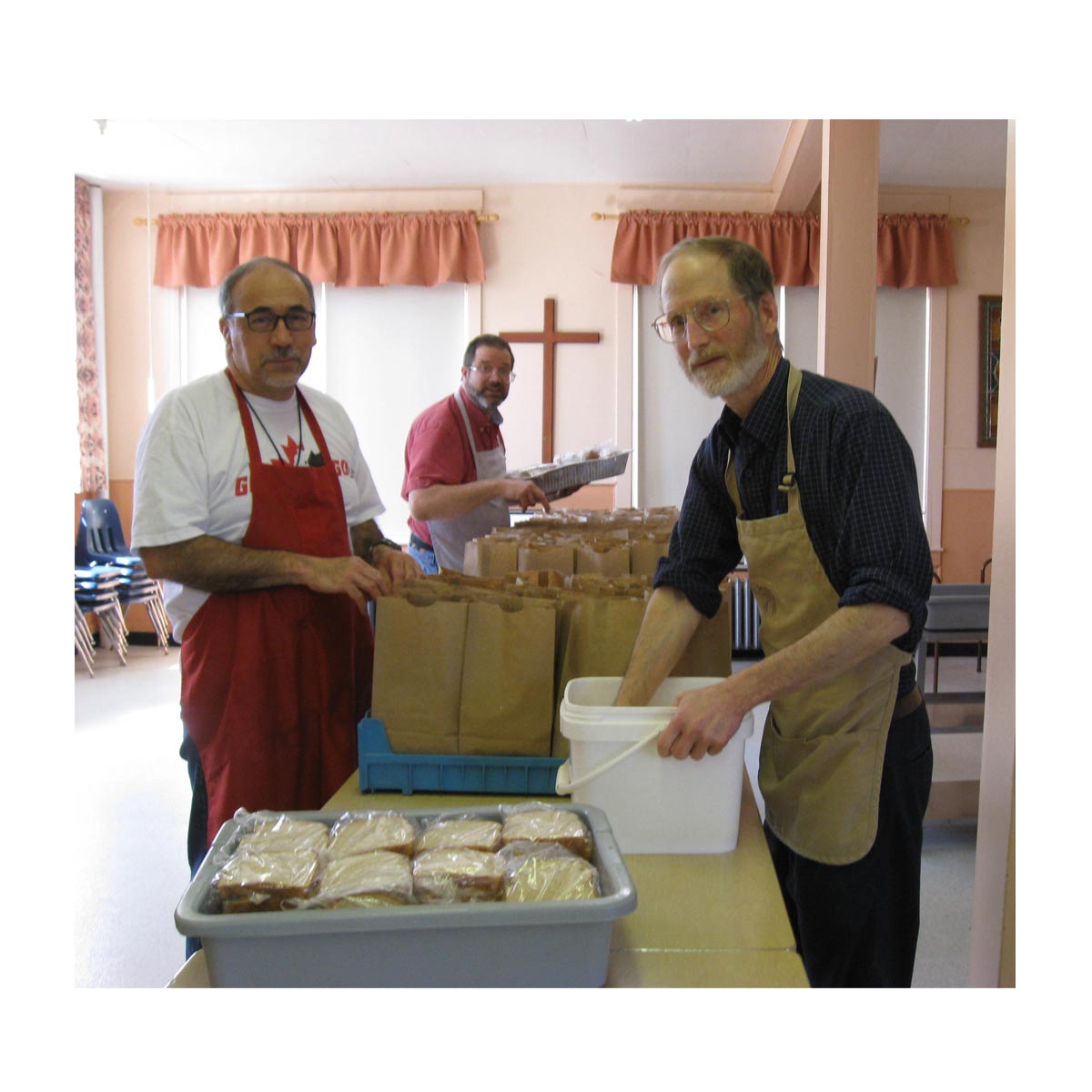This content has been archived. It may no longer be relevant
“Behold me—the worst—and take heart. If he touched me and used me to create Madonna House Apostolate, what will he not do with you who possess so many virtues! Let yourselves go into his mighty hand. Fit yourself into his palm. Behold his mercy….”
from Catherine Doherty’s diary, 1964
***
Fr. Denis Lemieux used this quote in the first conference of our staff retreat which he gave us from Combermere by way of Zoom.
The retreat was excellent, focusing on how Catherine’s relationship with Our Lord is an encouragement and guide for us in these difficult days.
Catherine described her struggles and failures and, in spite of it all, how her surrender to God yielded an incredible harvest.
Even over Zoom we were able to be open and honest with each other as well, and we received encouragement not only to accept our inner poverty, but to allow God to make full use of it and multiply the fruitfulness of our humble efforts. In the course of time, there is the hope that he will transform our hearts as well.
***
Here are a few ways in which we saw God making use of our humble efforts.
***
1) A few days ago, a man who came for meals at our soup kitchen many years ago, phoned asking if he could come by and make a donation. He said that because of COVID he was hesitant to call at first, but did so anyway, and later he came by with a very generous cash donation.
He explained that as a child his father had brought him to our soup kitchen and encouraged him to eat as much as he wanted, saying, “It’s all paid for.” Other members of his family would come as well.
He eventually found good employment. He was clearly grateful for the hospitality that he and his family had been given here and felt it was time to show this gratitude by making this gift.
2) One of our volunteers recently married. Prior to her marriage, she explained to us that, because of all the COVID restrictions, they were not going to be able to have a wedding banquet.
In lieu of this, and because of her obvious love and concern for the poor, she asked if we could give a “banquet” to those who come to us for a noon meal.
We agreed, and a few days later her fiancé dropped by with funds sufficient for us to make a special noon meal, a banquet for the poor.
Before COVID, we provided soup which people ate in our dining room, but during these COVID days, we can only provide carry-out. So we decided to purchase Kentucky Fried Chicken and serve it with coleslaw, bread and butter sandwiches, homemade muffins, ice cream sandwiches, and a soft drink.
The day on which the meal was served was extremely cold (-35 Celsius, -31 Fahrenheit), and we bundled up to hand it out. Because of the cold, we wondered who would come. But very many did come, also bundled up against the cold. They did not linger for conversation, but thanking us for the meal, they hurried off to a warm place to eat it.
Later, the couple thanked us for hosting their meal. They sent us beautiful photos of their traditional Ukrainian Catholic wedding, including the ceremony of the crowning of the bride. These pictures and the generous thoughtfulness of the now married couple, brought us much joy.
3) Last week, we had just handed out the last bottle of water.
We give these out on request each day along with the bagged lunches we give at the door. The numbers coming for lunches have been high—close to 130 most days—and we had run out of water bottles.
Fortunately, it was near the end of that meal period and very few who asked had to do without it.
After the meal, when I walked upstairs to check our email, I found in our inbox, a question from another volunteer asking about our water supply. I told him we were out, and before our next meal, he brought us 19 cases of water bottles.
***
We are invited to “let ourselves go into his mighty hand,” not somewhere else, but here in our “ordinary” Marian Centre life. Here we discover, “It’s all paid for:” a free wedding banquet, a multiplication of water bottles. As Fr. Denis said at the end of our retreat, “Ordinary life is deeper and more mysterious than we think.”





